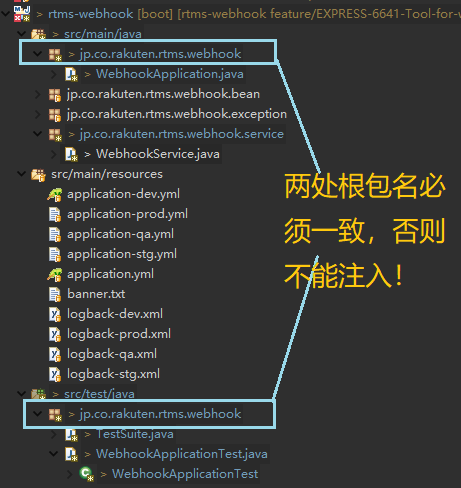Roads & PavementRoads & Pavement
Barefoot
Minimal
Low
Medium
High
Maximal
All around running shoes offer comfort and cushioning for daily runs, jogs, walks, and long mileage. They offer enough versatility for both faster and slower runs and are a great option for those who want one running shoe to do it all.
Fast run or uptempo running shoes are lightweight and responsive. They offer streamlined designs that have minimal uppers and offer a high level of energy return. These shoes are a great option for faster runs in the week or those looking for a livelier experience.
Max Cushion shoes offer premium cushioning with ample ground protection and a stable ride. These types of shoes provide abundant impact protection that softens landings while running at any pace or distance. These types of shoes are best for slower recovery runs and easy days where comfort takes priority.
Racing shoes are designed with optimal performance in mind. These types of shoes have snug-fitting uppers, energetic midsole foams, and features implemented for maximum efficiency. These types of shoes are best for runners looking to gain the ultimate advantage in races but may sacrifice some durability and comfort.
Gym Workout shoes offer a stable and versatile ride. They have a firmer underfoot feeling that provides stability for lateral movements with comfortable uppers. These types of shoes are best for trips to the gyms, cross training, casual wear, and light running. Spring Boot test does not start context or load dependencies
Road running shoes feature smooth outsoles that are designed for running on paved surfaces such as roads, sidewalks, and bike paths.
Designed to handle most trail runs, these shoes prioritize comfort and a smooth ride. These shoes are great for anything from smooth singletrack, park trails, and fireroads making them ideal for those who run from their doorstep on streets before hitting the trail.
These shoes are best used for hard, rugged trails such as shale, granite or sandstone where grip on smooth surfaces and underfoot protection are important.
Designed for use in muddy, soggy conditions, these shoes feature very aggressive outsoles that dig deep into soft ground for exceptional traction.
These shoes feature technical outsoles designed to grip snowy and icy trails making them ideal for winter trail running.
Cushioning level, or stack height, refers to how much shoe is between your foot and the ground. For this category, we reference the amount of cushioning below the forefoot as the heel height will be equal to or greater than the forefoot height.
Junit Autowired
0-13mm. The Shoe generally does not have a midsole and feels like there is no cushioning. This shoe is all about feeling the ground underfoot.
14-18mm. The shoe has a thin midsole that allows for a natural running experience. Racing shoes and minimalist shoes are common here. These shoes offer a feeling of being connected to the road or trail.
19-23mm. The shoe has a slightly cushioned feel and may feature added cushioning technologies. Performance training shoes and some trail shoes are common here. These offer protection during footstrike but prioritize a lightweight, grounded experience.
24-28mm. These shoes have a stack height that fall near the middle of the spectrum.The shoes in this category are verstaile and great for all types of runs and distances.
29-34mm. The shoe has a thick midsole and ample cushioning. These shoes are highly protective and absorb more impact than the body.
35mm plus. The shoe has an extremely thick midsole and extra cushioning. The focus is on protection and soft foam underfoot with hardly any ground feel.
Neutral shoes support the foot through a normal range of arch collapse and generally do not have a built-in technology to correct movement.
Stability shoes are a great option for those who overpronate or need added support. These shoes help to limit the inward rolling motion of the ankle while running or walking and assist in guiding the foot straight through the gait cycle. Spring using constructor injection with Autowired DEV Community
Product Details:
JUnit 5 tutorial part 2 Unit testing Spring MVC with JUnit 5 shop, Runner org.junit.internal.runners.ErrorReportingRunner used shop, spring JUnit autowired shop, How to Write Unit Test Code Apache Linkis shop, JAVA EE Spring Auto Wiring Beans with Autowired annotation shop, Dependency Injection Autowired Resource and Inject Jstobigdata shop, How does Autowired work in Spring framework SAP Community shop, Cucumber Tests in Spring Boot with Dependency Injection shop, How to Migrate From JUnit 4 to JUnit 5 Step by Step DZone shop, JAVA EE Spring Auto Wiring Beans with Autowired annotation shop, Software Testing Tutorial Learn Unit Testing and Integration Testing shop, springboot junit Autowired Service Could not shop, JUnit Rest API Testing Get Started Blazemeter by Perforce shop, Minute Read How Autowiring works with Repository Interfaces in shop, Unit and Integration Testing in Spring Boot Micro Service by shop, Spring Autowired Bean Autowiring with Examples shop, Mockito An Unit Testing Framework Josh Software shop, Simple Autowired Component example in Spring Boot shop, Java on X shop, Spring using constructor injection with Autowired DEV Community shop, Junit Autowired shop, Spring Boot test does not start context or load dependencies shop, springBoot Junit Autowired eolink shop, Junit Autowired junit autowired CSDN shop, Unit Test Spring Boot Annotations java springframework spring unittest annotations shop, Spring SpringBoot Autowired annotation r bettercoding shop, spring Mock of an Autowired dependency causes random junit shop, Unit testing with code coverage using JUnit Auriga IT shop, JUnit Tests Unit and Integration Testing of a Java Web App Toptal shop, Spring Autowiring By Type mode Using Autowire.BY TYPE shop, Unit and Integration Testing Spring Boot and JUnit 5 by ThankGod shop, Avoiding Spring context issues when parallelising Nested Spring shop, Testing RESTful Web Services 13 Mock objects with Mockito in a JUnit 5 Test Case shop, Spring Boot Unit Testing CRUD REST API with JUnit and Mockito shop, JUnit5 Autowired Java Qiita shop, VScode quick fix should not suggest removing Autowired shop, i defined a bean in spring.xml and i want to use the bean in the shop, java Spring JUNIT datasource autowiring Stack Overflow shop, Unit Testing and How to Do It for Spring Boot Application shop, java No found for dependency expected at least 1 bean which shop, Spring Autowiring By Name Using Autowire.BY NAME shop, java intellij incorrectly saying no beans of type found for shop, junit5 not support spring Autowired annotation Issue 1152 shop, Spring Default Auto wiring mode Autowire.NO Example shop, inversion of control Can t test spring injection with JUnit shop, Autowiring not working in Spring 3.1.2 JUnit 4.10.0 Stack Overflow shop, dependency injection Fix JUnit Autowire Clock Stack Overflow shop, spring boot What is difference between using and not using shop, spring boot What is difference between using and not using shop, java Problem with Autowired in JUnit Test on a Spring MVC shop, Product Info:
Autowired in junit shop.
- Increased inherent stability
- Smooth transitions
- All day comfort
Model Number: SKU#6921027





